Free water for all in Palabek settlement
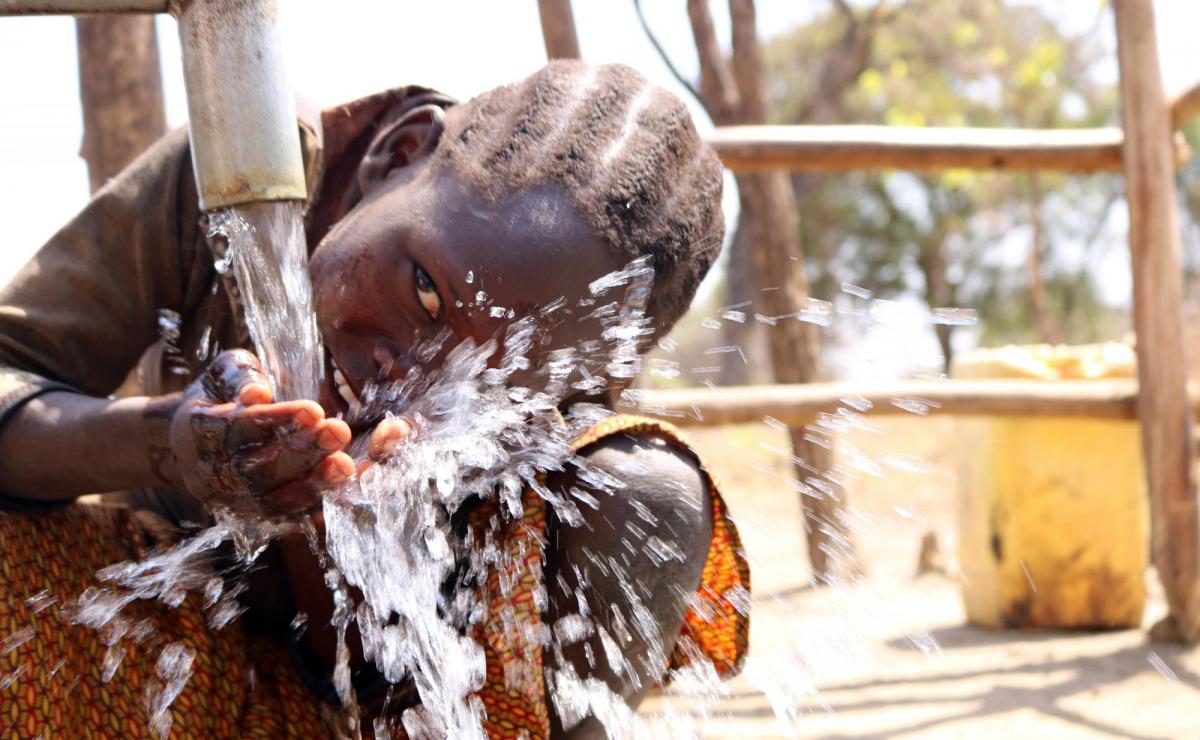
54-year-old Margaret Poni uses at least 120 litres of water every day. The mother of 5 fetches the water from a borehole only a few steps from her house in zone 1, Palabek settlement.
“The weather here is too hot and calls for much drinking water, we also use water for cooking and cleaning.” “With access to unlimited water, we also have a chance to bathe at least twice a day.” says Poni a South Sudanese refugee.
Poni is just one of the thousands of South Sudanese refugees and host community residents with access to clean water from boreholes drilled by the Lutheran World Federation (LWF) in Palabek.
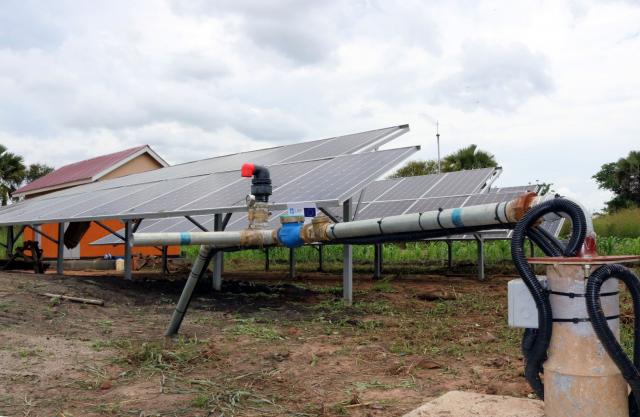
LWF’s WASH Officer Vickie Tumwebaze explains that LWF has drilled 39 boreholes and motorized 5 in Palabek settlement and host community to extend clean water to the targeted audiences.
“Access to clean water is a basic human need and the main reason as to why we are dilling and motorizing boreholes in Palabek. We want each refugee to have access to at least 20 litres of water a day for drinking, cooking and keeping themselves clean.” Says Tumwebaze who explains that a standard borehole can support 500 individuals with clean water and a motorized one reaches up to 5,000 people.
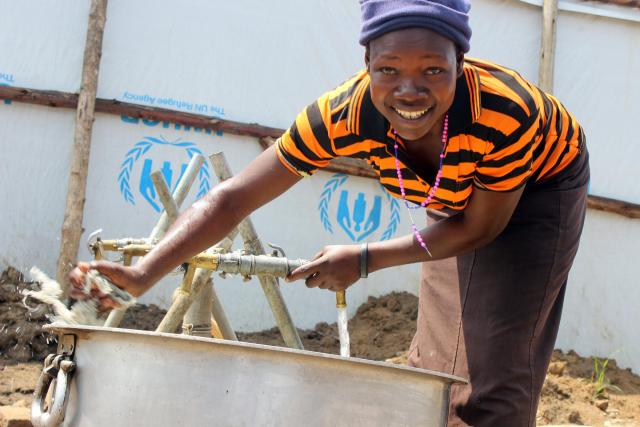
Water to prevent disease outbreaks
Access to clean water facilitates proper hygiene and sanitation hence preventing disease outbreaks. Contaminated water is deadly; it causes diseases that result in to death. According to a report from the World Health Organization, 3.4 million people, mostly children, die annually from water-related diseases like diarrheal and cholera while tens of millions are seriously sickened by a host of water-related ailments majority of which are preventable.
LWF’s WASH Advisor Richard Wakholi explains that upholding sanitation and hygiene in refugee settlements is a major objective for LWF’s efforts of extending clean water to refugee communities since poor sanitation breeds diseases and death.
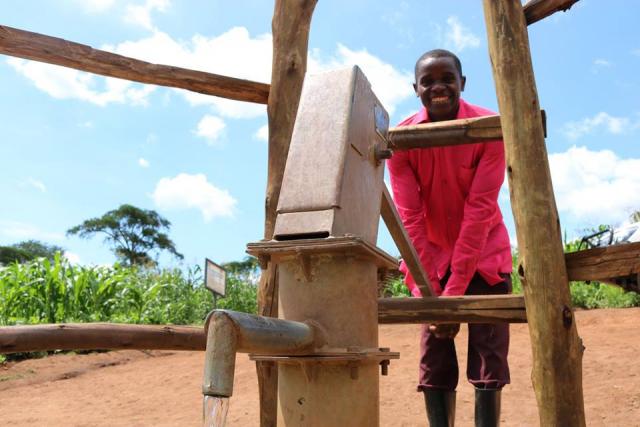
Michael Ochaya is a South Sudanese refugee in Palabek who is pleased to have access to clean water. “Water borne diseases are rear in our community, our children are healthy because we use clean water from boreholes and water taps for drinking, regular cleaning of ourselves, homes and surroundings.” Says Ochaya who is a member of a Water User Committee (WUC).
To prevent water contamination at water access points, Ochaya says that WUCs clean them at least once every day. “We also fence the sites to thwart animals from accessing and dirtying them because clean is safe, good and healthy.”
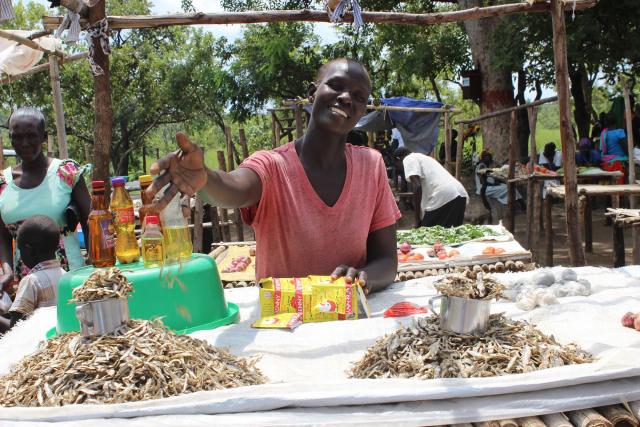
Clean water for good health; good health for wealth
Good health comes with an active mind and strong body which traits are essential for economic development. Access to clean water facilitates proper sanitation and hygiene hence good health.
“Strong and healthy people can engage in productive work and help in both poverty alleviation and sustainable development not only in their households but also in their communities.” “Healthy children have an opportunity to access good education for a brighter future.” Says Alex Ssenyondo, LWF’s Livelihoods Advisor who adds that “the young generation is Uganda’s future labor force.”
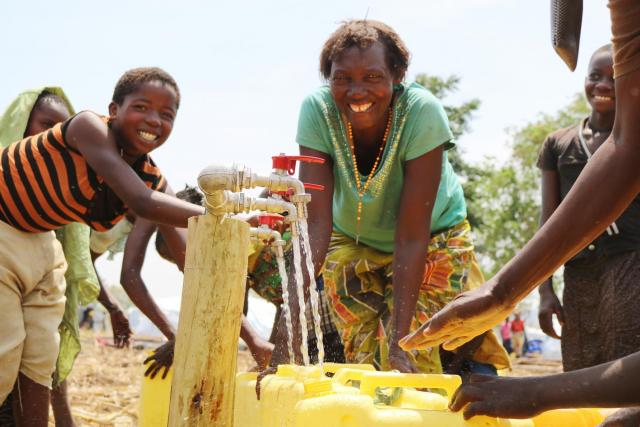
More funds needed towards clean water for persons of concern
In addition to two zones in Palabek to which LWF is extending clean water, it has been added three extra zones including zone 3, 4 and 7 which host over 25,000 persons of concern. A lack of adequate water breeds poor sanitation, health and also robs people of their basic human dignity.
This calls for immediate borehole drilling and motorization to provide the targeted populace their right to clean water. However, LWF’s efforts to establish the water points is held back by limited resources.
“Refugees in zone 3,4 and 7 don’t have access to adequate water because there are a few water access points.” “They endure long hours of queuing to get some little water to use. Children and women bear the brunt of this burden.” Wakholi.
LWF’s humanitarian WASH activities in Palabek settlement are funded by UNHCR, UK aid, the Canadian Government through CLWR, Swedish International Development Cooperation Agency (SIDA) through Church of Sweden.

